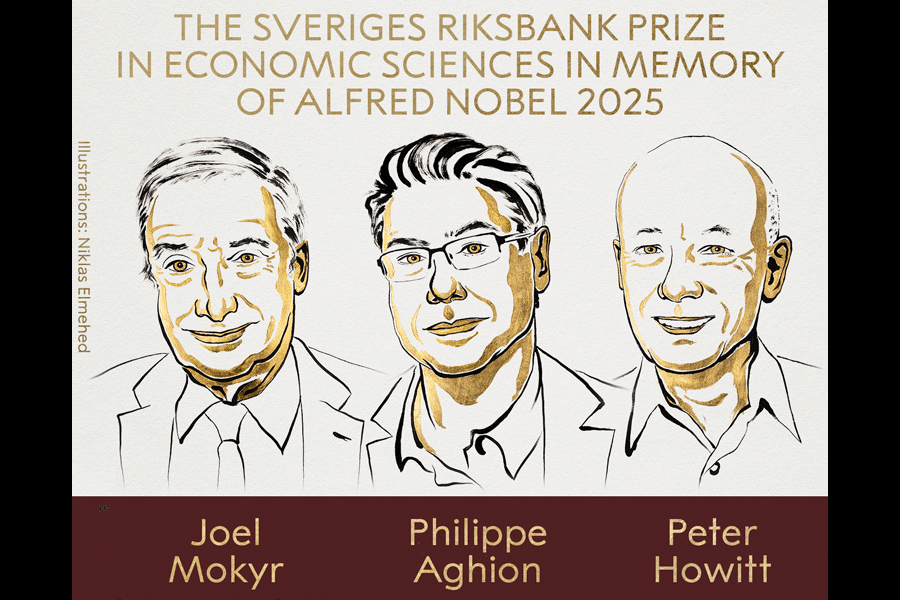The Royal Swedish Academy of Sciences has decided to award the 2025 Sveriges Riksbank Prize in Economic Sciences in Memory of Alfred Nobel to Joel Mokyr, Philippe Aghion and Peter Howitt “for having explained innovation-driven economic growth” with one half to Mokyr “for having identified the prerequisites for sustained growth through technological progress” and the other half jointly to Aghion and Howitt “for the theory of sustained growth through creative destruction.”
They show how new technology can drive sustained growth
The laureates’ work explains how continuous innovation and technological advancement have made this transformation possible.
“Technology advances rapidly and affects us all, with new products and production methods replacing old ones in a never-ending cycle. This is the basis for sustained economic growth, which results in a better standard of living, health and quality of life for people around the globe,” the Nobel committee said in a statement.
Historian Joel Mokyr explored why growth, once a rare occurrence, became a self-sustaining process after the Industrial Revolution. Using historical sources, he demonstrated that successful, continuous innovation requires not only practical knowledge of what works but also scientific understanding of why it works. He also highlighted the importance of societies remaining open to new ideas and change.
Economists Philippe Aghion and Peter Howitt developed a theoretical model in 1992 to explain the process of “creative destruction”—whereby new, improved products and technologies replace outdated ones. This cycle, while driving progress, also disrupts existing industries and firms.
In their work, the laureates showed that while creative destruction spurs economic advancement, it also generates conflicts that must be managed constructively. If not, established interests may hinder innovation to protect their own position.
“The laureates’ work shows that economic growth cannot be taken for granted. We must uphold the mechanisms that underly creative destruction, so that we do not fall back into stagnation,” said John Hassler, Chair of the Committee for the Prize in Economic Sciences.










